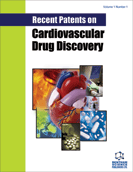Abstract
Recently, adipose tissue has been implicated in the regulation of vascular function in humans. This regulatory function is mediated via the release of vasoactive cytokines called adipokines. Adiponectin is an adipokine with powerful anti-inflammatory and antioxidant properties being dysregulated in obesity and in insulin resistance states. In both in vitro and in vivo models adiponectin has been shown to increase nitric oxide bioavailability, improve endothelial function, and exert beneficial effects on vascular smooth muscle cell function. Strategies to upregulate adiponectin expression or to potentiate adiponectin signalling may favourably modulate vascular redox state and therefore reduce cardiovascular risk. Various drug classes such as glitazones, newer sulfonylureas, angiotensin receptor blockers, ACE inhibitors and nicotinic acid exert beneficial effects on insulin resistance partly by increasing plasma adiponectin levels. Others such as tetrahydrobiopterin or certain antioxidants are also promising in normalizing plasma adiponectin levels. Given the central role of adiponectin in vascular disease states and obesity-related metabolic disorders, improving adiponectin vascular or systemic bioavailability via existing drugs or novel therapeutic strategies may be valuable in the prevention of cardiovascular disease in humans. The discussion of recent patents for the adiponectin as a regulator of vascular redox state is also included in this review article.
Keywords: Adiponectin, adipose tissue, atherosclerosis, endothelium, treatment, vascular redox, Adiponectin Biosynthesis, Renin - Angiotensin System (RAS) Inhibitors, Statins, Antioxidants
 23
23

